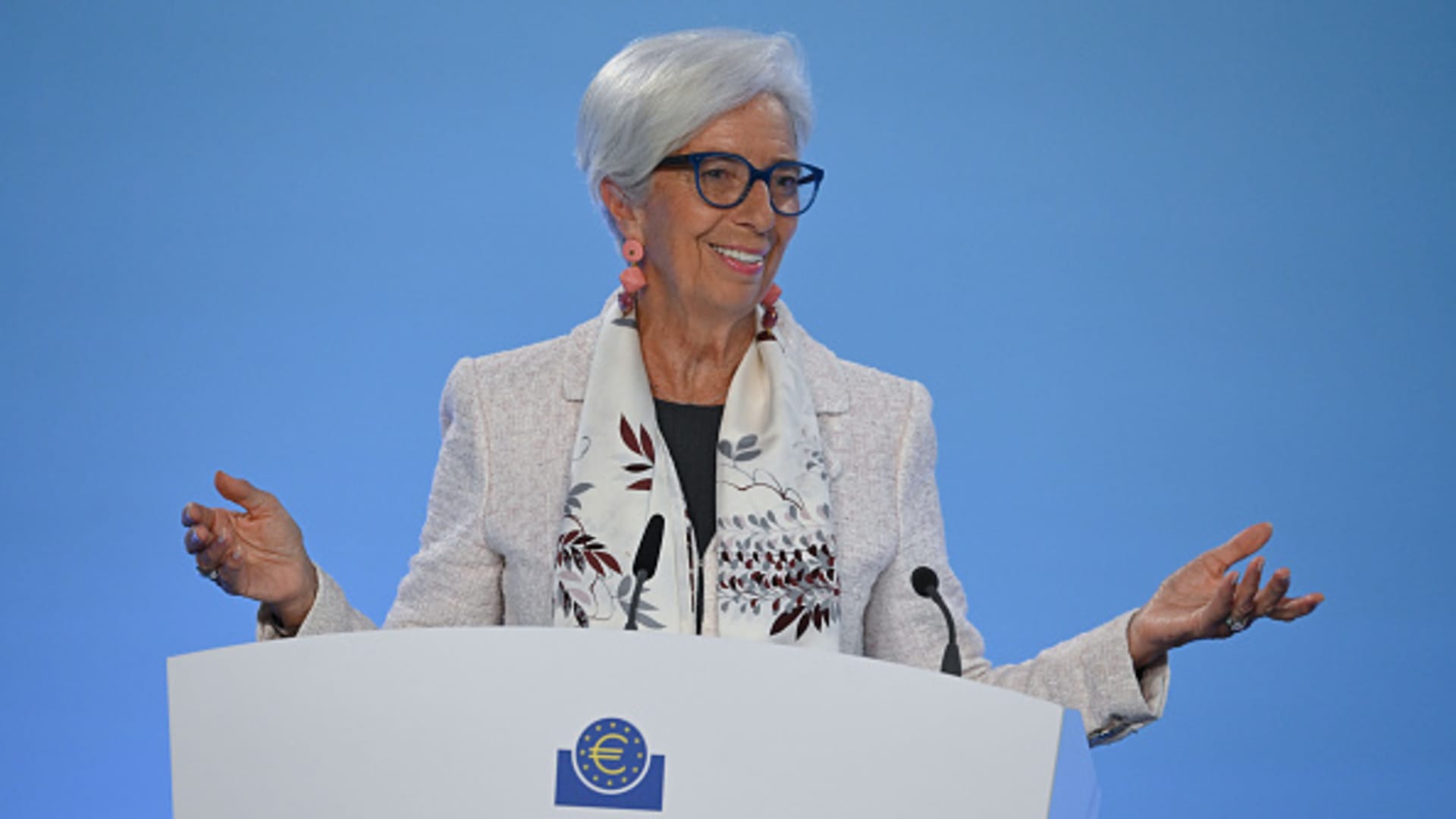Euro zone business activity declined more than expected in August, particularly in Germany, while some inflationary pressures returned, posing a challenge for the European Central Bank's efforts to control inflation without causing a recession.
The European Central Bank (ECB) will maintain high interest rates for as long as necessary to combat persistent inflation, according to ECB President Christine Lagarde, amid efforts to manage a stagnating economy; however, the ECB is also considering longer-term economic changes that may contribute to sustained inflation pressures.
German inflation beats forecasts, complicating the ECB's task, while US labor data eases and GDP is revised lower, causing the dollar to weaken and the euro to strengthen.
Euro zone growth is weaker than predicted, but the need for more rate hikes by the European Central Bank is not automatically voided, according to ECB board member Isabel Schnabel, who raised concerns about investors undoing the ECB's past work and the decline in real risk-free rates counteracting efforts to bring inflation back to target.
Euro zone inflation holds steady in August, but underlying price growth falls, complicating decisions for the European Central Bank as it considers a pause in rate hikes amid a slowdown in economic growth.
Consumer prices in the eurozone rose 5.3% on average this month compared to last year, with core inflation easing to 5.3%, potentially increasing pressure on the European Central Bank to raise interest rates.
Eurozone inflation remains at 5.3%, leading analysts to speculate that the ECB may consider pausing its interest rate hikes in light of a slowing economy.
The euro zone's economy is expected to grow slower than previously forecasted due to high inflation and Germany slipping into recession, according to the European Commission.
The European Central Bank is expected to see inflation in the euro zone remain above 3% next year, which strengthens the case for an interest rate increase.
Wholesale inflation in the US exceeded expectations in August, driven by higher gasoline prices, indicating that inflationary pressures are still present in the economy.
The European Central Bank (ECB) has raised interest rates to a record high of 4% in an attempt to combat rising inflation, but suggests that this increase could be the last for the time being. The ECB expects inflation to fall in the coming years, but acknowledges that higher rates have impacted economic growth projections for the eurozone.
Euro zone consumer inflation in August remained more than twice the European Central Bank's target, with a year-on-year rate of 5.2%, although slightly lower than initially estimated, according to Eurostat.

